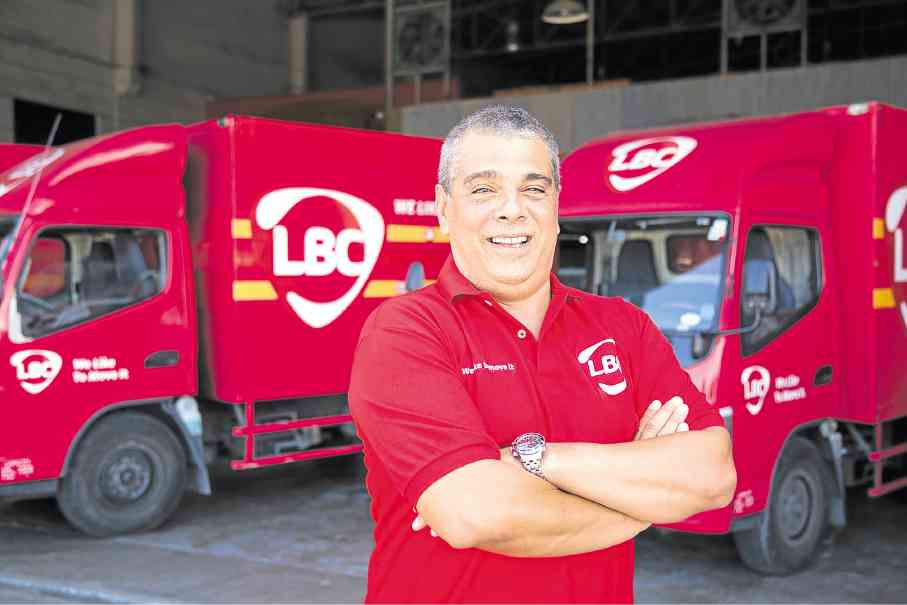LBC plods through 7,641 PH islands to deliver goods
Having 7,641 islands (as of last count), all teeming with natural resources, is quite an abundant blessing for the Philippines.
But it can also be a terrible curse for those in the logistics business like LBC that are measured by their speed and efficiency in delivering goods; where there should not be a mountain high enough or river wide enough to keep them from delivering goods entrusted to them.
Fortunately for LBC, it has accumulated decades of experience in the tricky logistics business in the Philippines, which means grappling with often unreliable shipping schedules, gridlock traffic and flight cancelations due to extreme weather.
Its ability to overcome these daunting daily challenges has enabled it to determine how it can best deliver products safely, affordably and quickly to its individual and institutional customers.
Thus, from its beginnings in 1945 as a brokerage and cargo agent, LBC, listed on the Philippine Stock Exchange through LBC Express Holdings Inc., has grown into a network of over 6,400 branches, hubs and warehouses, partners and agents in over 30 countries.
Article continues after this advertisementIt is the country’s market leader in retail and corporate courier and cargo, market remittance and logistics services, serving an estimated 16 million customers every year.
Article continues after this advertisementSuch a network and the hard-earned knowledge and experience in logistics as well as remittance services put LBC in an enviable position to stay ahead of its growing number of competitors, according to Miguel Angel A. Camahort, LBC president and chief executive.
Adding to the positives are bold measures implemented since 2015 to make its operations more efficient, thus keeping costs down and increasing the profit margin.
Camahort shares that while 2015 numbers came within expectations, these could have even been better. Thus it invested heavily in new information systems to better track the moving parts of its business. It invested, for example, in handheld devices for the couriers for track and trace purposes and also invested in GPS systems for its fleet to find better delivery routes.
The investments have been paying of, Camahort says, as with the manual processing figured out, its courier productivity surged. With manual processing, LBC couriers each delivered an average of 60 parcels a day. With the handheld devices for improved track and trace services, this went up to about 90.
Plus, LBC opened more branches in 2016 to bring it closer to the customers.
“Through all of the technology and investments in prior years, savings and efficiencies, we were able to hit our targets despite all of the challenges,” Camahort says.
And the growth momentum promises to carry over to 2017, with both the retail and corporate segments contributing to the growth.
Camahort says 2016 “was a banner year for LBC Express. We made great strides onto our direction to continuously enhancing our operations, our company. We’ve been very focused the last few years, as we are ready to take it to the next level.”
The official 2016 figures are still being processed but Camahort says he expects 2016 “to be a very good year for the shareholders.”
LBC data show that in the third quarter of last year, net income before tax reached P292 million, almost double that of the same period the previous year. In the nine months ending Sept., LBC also improved profit by 57 percent to P895 million from P571 million in the same period in 2015.
With the Philippines expected to continue growing this year, Camahort says there should be even more movement of goods, which is good news for LBC.
“The more movement of goods means more consumer power. I believe there is a direct relationship there,” he says, adding that cargo has been growing at a far faster clip of 18 percent compared to the usual annual rate of 7-8 percent.
Another bright spot on the horizon for LBC is the vibrant e-commerce segment, which is growing significantly with more FIlipinos becoming entrepreneurs and getting used to buying and selling online.
“We want to ride the wave with them,” Camahort says.
The firm is also establishing a presence in growing communities outside of the traditional urban centers such as Cebu and Davao, where trade and commerce are thriving.
“Mindanao is growing, also on the retail and e-commerce side. There are a lot of orders there. Palawan is also growing,” he says.
Cold chain service is also a blue ocean for LBC, which is working with partners in the food business such as San Miguel Corp., RFM Corp. and the supermarkets to find the best way to help them deliver products to their own growing networks across the country.
For Camahort, traffic remains a significant source of headaches for the company as it makes it doubly difficult for the trucks, motorcycles and vans to go around. Not to mention the clogged airports as well as inefficient sea transport system.
But these are all part of the cost of business and getting around these challenges has become the distinct advantage of LBC.
And it is shoring up its coffers to prepare for the next stage of growth with special focus still on logistics, which remains the core business of LBC, making up for close to 90 percent of total revenue.
LBC Express Holdings has, for example, filed with the Securities and Exchange Commission its registration statement in relation to the listing of up to 69.1 million common shares at about P17 each. Part of the proceeds will be used to expand its retail and corporate business and further develop its information technology systems.
These are all part of moves to further tighten its grip on the logistics and remittances market in the Philippines. It already has a stranglehold on the lucrative sector, and it has no intention of letting go.
